Visiting Scholars

Visiting scholars from LS Electric (South Korea) bid farewell to UT.
About the Visiting Scholars Program
The IC² Institute Visiting Scholars Program invites scholars from around the globe to research, write, and publish in-residence for anywhere from three months to one year. The program, now entering its fourth decade, has hosted over 100 Scholars in Austin, Texas, from Asia, Australia, Europe, Latin America, and other locations in the U.S.
Over the years, IC² Institute Visiting Scholars have come from a range of academic disciplines to work and consult with Institute staff researchers and affiliated faculty. We encourage proposals from scholars interested in any aspect of the well-being economy.
What do we mean by the “well-being economy”?
The well-being economy addresses the various social, economic, and technological factors that impact quality-of-life outcomes. These outcomes include resiliency, equity and sustainability and, thus, extend beyond conventional markers of societal progress such as GDP. These alternative indicators of human and societal well-being suggest that progress should not be reduced to the economic haves and have nots. Inequities in quality of life–the digital divide, health disparities, the racial wealth gap, and the social isolation of rural and poor communities–are areas that require attention and innovation.
Preference will be given to scholars with established publications records who are on sabbatical or other leave from their host institutions, and who are working on empirical projects in research areas related to the Institute’s strategic interest in the well-being economy.
IC² Institute Visiting Scholar FAQs
Do I qualify to be an IC² Institute Visiting Scholar?
To be considered, applicants should be scholars with PhDs, advanced PhD students, or Fulbright scholars. Scholars can be working in the private sector, in regional or national government, or academia.
How much does it cost to be a Visiting Scholar?
The program is free of charge, but Scholars are responsible for their own travel and living expenses while in Austin. The Institute will provide office space with internet and access to The University of Texas at Austin General Libraries.
Do I need to know English well?
English language proficiency is a pre-requisite. We can help arrange ESL classes in Austin at the Scholar’s expense, but the most successful visiting scholars have a high degree of fluency in English, both written and spoken. (We do not require a TOEFL score as part of the application process, but we recommend a score of 79 on the TOEFL internet test.)
Can I bring my family to Austin?
Certainly! Austin is an extremely friendly, safe, and “livable” city, with good transportation networks, excellent schools, and plenty of parks, pools, and restaurants.
Can I audit class at The University of Texas at Austin?
Scholars are welcomed and encouraged to audit classes at UT during their research program. Arrangements will be made upon your arrival.
What visa do I need?
Foreign-based scholars will probably need the J-1 visa. Visa processing through the University typically takes up to 12 weeks.
What are the expectations of Visiting Scholars during their program?
There are very few formal expectations while you are here:
- Scholarly productivity
- A brownbag lunch presentation on some aspect of your work, to be held at the Institute and which will be open to scholars and researchers around the University
- A short summary of your activities at the end of your stay that we can include on our website
Applying to the IC² Institute Visiting Scholars Program
To apply, send us a 2-page detailed proposal outlining the research you hope to accomplish while in Austin. Be sure to explain why you think the IC² Institute is the best place to accomplish your research objectives and include your plan to publish or otherwise widely disseminate your findings. Include a full vita with your proposal.
For additional information about the IC² Institute’s Visiting Scholars Program, or to apply to the program, contact:
Dr. Bruce Kellison
Visiting Scholar Coordinator
bkellison@ic2.utexas.edu
Current and recent visiting scholars and researchers
2022
Claas Digmayer, RWTH Aachen University, Aachen, Germany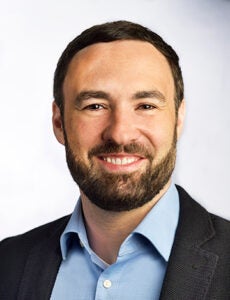
Claas Digmayer is a post-doc and research associate in the Human-Computer Interaction Center at RWTH Aachen University. His research and teaching focus on innovation management, big-data analyses, and digital product development. He serves on the board of governors of the IEEE Professional Communication Society as a member-at-large. During his stay at the IC² Institute, Claas investigates aspects of well-being and community development from the perspective of energy communities. The work provides input for his research project “Flexible Electric Networks (FEN): DC socio-economics, niche readiness, and market diffusion of DC technologies,” funded by the Federal Ministry of Education and Research (BMBF, FKZ 03SF0592, Flexible Electrical Networks Research Campus), which examines the development and diffusion of direct-current technologies in niche markets. His stay is supported by the Exploratory Research Space of RWTH Aachen University with a scholarship from the Theodore-von-Kármán-Fellowship (Outgoing Scientists) Planderrogram (funded under the Excellence Strategy of the Federal Government and the Länder).
2022
Dany Flávio Tonelli, Federal University of Lavras, Lavras, Brazil 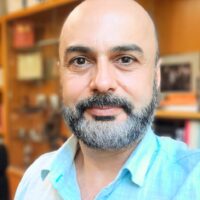
Dany Flávio Tonelli is an associate professor at the Department of Public Administration of the Federal University of Lavras – Brazil (DAP/UFLA). He held the positions of executive director of the Faculty of Applied Social Sciences between 2020 and 2022, deputy dean of extension and culture (2016-2020), coordinator at the socio-technological development office (2015-2020), and assistant professor at the Federal University of Alfenas (2009-2011). In 2019, Dany participated as a visiting professor at the Research Institute of the University of Bucharest, Romania, exploring the innovative management of public policies in post-transition countries. He has also developed research projects and extension partnerships with the industry on different topics under collaborative governance and government, university, and industry relations. He obtained his master’s and doctorate degrees in administration from UFLA (2004 and 2011), focusing on organization, change, and strategy management. He has worked in teaching and coordinating projects financed by agencies since 2012 on topics like (i) public innovation, (ii) innovation ecosystems, (iii) collaborative public-private arrangements, (iv) collaborative governance, and (v) other science, technology, and innovation issues.
2020
Ricardo Reolon Jorge, Federal University of the ABC Region, Sao Paulo, Brazil
Ricardo Reolon Jorge is a Professor at the Federal University of the ABC Region, Sao Paulo, Brazil, where he teaches business administration and manufacturing engineering. He has been researching entrepreneurial universities in Brazil for the past several years and is part of the research team responsible for the Entrepreneurial University Ranking (EUR), a comprehensive tool used by the government when developing public policies related to education. During his stay at the IC2 Institute, he will be researching how the EUR can be applied to other Latin American universities, and how these universities can use the insights from the ranking to develop their entrepreneurial capabilities.
2019
Sangjoon Lee, Alfred University,  Alfred, New York, USA
Alfred, New York, USA
Dr. Lee is a Professor in the College of Business of Alfred University in Western New York since 2004. His primary research is in the economics of innovation. During his stay at the IC² Institute, he is exploring innovation and entrepreneurial ecosystems in rural and small city environments in the U.S. He is also exploring entrepreneurship education programs at UT Austin and the entrepreneurial ecosystem. He is originally from South Korea, where he grew up and worked for worldwide trading & investment business enterprises of Samsung and SK for 10 years.
2018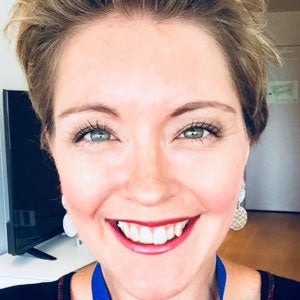 Sarah Louisa Birchley, Toyo Gakuen University, Tokyo, Japan
Sarah Louisa Birchley, Toyo Gakuen University, Tokyo, Japan
Sarah Louisa is a Professor in the Graduate School of Business Administration and Faculty of Business Administration. Originally from Wales, she has lived in Japan for the last 17 years. Her research is focused on self-initiated expatriate entrepreneurs. During her stay at the IC² Institute, she is working on two projects: one concerned with Japanese self-initiated expatriate entrepreneurs working in Southeast Asia, and a second project on Welsh self-initiated expatriate entrepreneurs in North and South America. Both projects explore how identity, geography, entrepreneurship, and expatriation intersect.
2018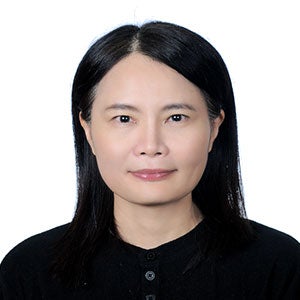 Hsing-Er Lin, National Sun Yat-sen University, Kaohsiung, Taiwan
Hsing-Er Lin, National Sun Yat-sen University, Kaohsiung, Taiwan
Dr. Lin is an associate professor in the Department of Business Management at National Sun Yat-sen University in Taiwan. Her current research interests focus on capability, ambidexterity, innovation, and knowledge strategy in family businesses, social enterprises, and high-tech firms. During her stay at the IC² Institute, she is researching the association between family governance and innovation performance in family-controlled firms.
2017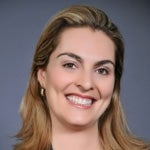 Cristiane Chaves Gattaz, Embrapa Instrumentation, Brazil
Cristiane Chaves Gattaz, Embrapa Instrumentation, Brazil
Cristiane is a Research Fellow of the Society for Design and Process Science (SDPS) / Software Engineering Society (SES), and affiliated with distinctive academic, governmental and industrial associations worldwide such as IEEE, Universia and UNESCO. She is currently a Research Collaborator in the field of the interface between innovation architecture and semantic computing at Embrapa, Brazil. Her research interests are mainly oriented to emerging and relevant themes of decision making metrics on innovation architecture. During her stay at the IC² Institute, she is researching the association between innovation success metrics and startup performance.
2017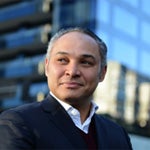 Wesley Mendes Da Silva, Fundação Getulio Vargas (FGV/EAESP), Brazil
Wesley Mendes Da Silva, Fundação Getulio Vargas (FGV/EAESP), Brazil
Wesley is a Professor of Business Finance. He has academic and professional expertise in corporate governance mechanisms, and in corporate and personal finance. Currently, he is actively involved in a graduate program on financial management at one of the most prestigious and accredited Business Schools in South America, Fundação Getulio Vargas (FGV) at São Paulo/Brazil. His main research interests as a visiting scholar at the IC² Institute include funding mechanisms such as crowdfunding, financial innovation, behavioral finance, as well as corporate governance of start-ups. Wesley has collaborated with many academic, professional and governmental institutions from Brazil, Portugal, USA, Italy, UK, Australia, Mexico, Chile, and France.
2017
Elin Merethe Oftedal, University of Tromsø, Norway
Elin is associate professor at University of Tromsø, where she directs the masters program in Business Creation and Entrepreneurship and teaches courses on taking innovations to market, commercialization, and methodology. She is a leader of the research group “Research on Entrepreneurial Universities” that focuses on how the university might have a role in stimulating responsible and sustainable innovation. She also has initiated and participated in several projects funded by the Norwegian Research Council. Her current project is “Digitalize or Die: Responsible Innovation in E-health.”
2017
Jing Wang, Beijing Institute of Technology
Jing Wang is a PhD candidate in the School of Management and Economics at Beijing Institute of Technology, where her research focuses on technological innovation and strategic management. While at the IC² Institute, she will explore institutional factors that contribute to the development of the science and technology service industry and comparisons between China and the United States.
2017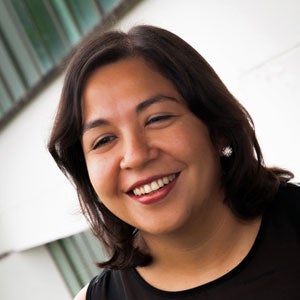
Aura Pedraza-Avella, Universidad Industrial de Santander, Colombia
Aura Pedraza-Avella is a Professor at the School of Business and Industrial Studies of the Universidad Industrial de Santander, Colombia (South America) where she teaches and conducts research on entrepreneurship and labor market outcomes. She has also a vast experience guiding entrepreneurs as a consultant in business models and as a former staff member at a business incubator in Colombia, as well as being an entrepreneur herself. While at the Institute, she is researching factors that contribute to the development of a high-tech entrepreneurship ecosystem.
April 2016 – June 2016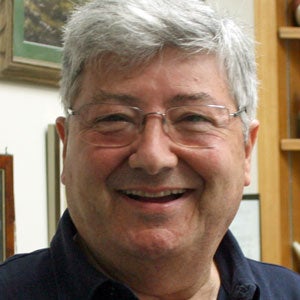 J. Andrés Faíña, University of A Coruña, Spain
J. Andrés Faíña, University of A Coruña, Spain
J. Andrés Faíña is Professor of Economics, holder of the Jean Monnet Chair in European Industrial Economics, and chairman of the Jean Monnet Research Group on Competition and Development (C+D). He has professional expertise in managing and evaluating European Regional Development Policy and has published a series of articles on regional economics in several leading academic journals. Currently, he is actively involved in a graduate course on Business Management of Innovation at the University of A Coruña. His main research interests as a Visiting Scholar at the Institute include R&D and innovation, entrepreneurship and lean start-up, as well as technology commercialization and regional economics.
January 2016 – May 2016
Margaret Grzegorczyk, University of Lodz, Poland
Margaret Grzegorczyk (PhD) is Assistant Professor at the Faculty of Management, University of Lodz, Poland. She also serves as Director of the University’s postgraduate program based on the IC² Institute’s Master of Science in Technology Commercialization (MSTC) degree program. Her research and publications focus on science-to-business marketing, relationship marketing, technology and knowledge transfer and commercialization. While at the Institute as a Fulbright Visiting Scholar, she is researching relationship management in technology transfer and commercialization processes.
September 2015 – August 2016
Roei Davidson, University of Haifa, Israel
Roei Davidson (PhD, University of Michigan, 2007) is a Senior Lecturer (tenured) at the Department of Communication at the University of Haifa. His research interests include economic communication and the culture industries. While at the Institute, he is carrying out an ethnographic study of culture crowdfunding in Austin. He is also continuing work on a research project examining the careers of journalists in Israel and another examining how financial literacy is taught in the U.S. and Israel.
September 2015 – August 2016
Gidon An, Department of Economics. Chungham National University, Korea.
Dr. An, a Fulbright scholar, is researching incubation and acceleration strategies for the Korean startup ecosystem in comparative context.
August 2014 – August 2016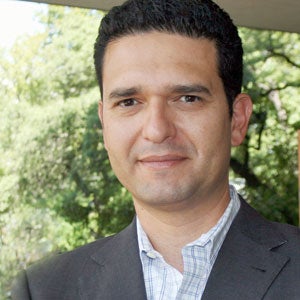 Félix Cárdenas, Monterrey TEC and EGADE Business School, Monterrey, Mexico
Félix Cárdenas, Monterrey TEC and EGADE Business School, Monterrey, Mexico
Dr. Cárdenas lectures and directs entrepreneurial institutional initiatives at Monterrey TEC, and he recently completed post-doc appointments at Columbia University and Harvard Business School. His research focuses on Private Equity & Venture Capital, and Innovation Management, specifically regarding firms’ internal exploitation and external exploration of knowledge. His research presents evidence that by combining internal R&D with external Corporate Venture Capital (CVC), firms can create market value and increase their profitability. One of his main research goals during his stay at the Institute is to disentangle the contribution of the complementarity between CVC and R&D and the impact it has in creating value in different industrial sectors and geographic regions.
September – November 2015
Filipa Duarte, Faculty of Science and Technology (FCT) of the Universidade Nova de Lisboa (UNL), Portugal
Dr. Duarte is the coordinator of the Research and Innovation Accelerator Unit (RIA) at FCT/UNL. The mission of RIA is to foster a research culture of excellence and innovation, by supporting the FCT/UNL community in preparing applications for competitive funding, development of research projects, and commercialization of the results. While at the Institute as a Fulbright Visiting Scholar, she is working on methodologies to commercialize early-stage technologies.
September 2014 – December 2014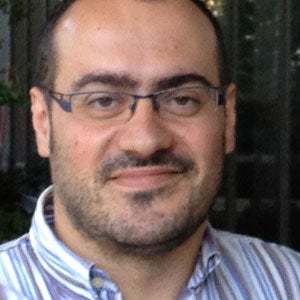 Paulino Montes-Solla, University of A Coruña, Spain
Paulino Montes-Solla, University of A Coruña, Spain
Mr. Montes-Solla, currently a Research Fellow in the Jean Monnet Group on Competition and Regional Development in the European Union, is working on his PhD thesis during his stay in Austin. His dissertation examines the effects of innovation and the management of innovation on regional economic development, especially in European peripheral economies.
February-August 2014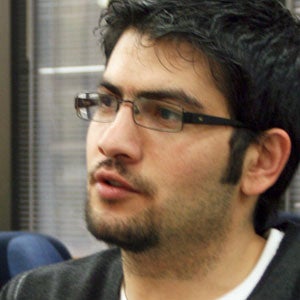 Oğuz Demir, Istanbul Commerce University, Turkey
Oğuz Demir, Istanbul Commerce University, Turkey
Dr. Oğuz Demir, an economics professor at Istanbul Commerce University, is interested in the power of creativity and technology to drive regional economic development. In particular, Professor Demir will build an entrepreneurial competitiveness composite indicator that accounts for educational systems, labor market infrastructure, and technology orientation in developed and developing countries.
January-December 2014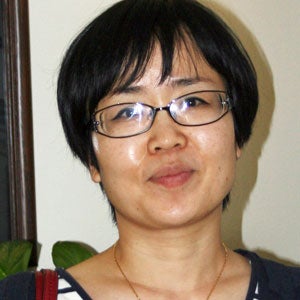 Joo Young Song, Pai Chai University, Korea
Joo Young Song, Pai Chai University, Korea
Dr. Song was a lecturer in the Department of Media, Information, and Society before coming to the Institute. Her research centers around visual image framing in news reporting. She is anticipating scholarly collaboration with UT faculty in other departments across the University during her stay in Austin, including work with faculty in the Moody College of Communication.
January-September 2014
Silvia Gaia, Universidade Tecnológica Federal do Paraná, Brazil
Professor Gaia is the Head of the Education Department at her university and is at the epicenter of Brazil’s efforts to reshape the role of higher education in Brazil’s national innovation strategy. Brazil’s Technological Innovation Centers, based at public universities, need to accelerate technology transfer between universities and the private sector. Her research will survey existing tech transfer models in comparative contexts and identify optimal approaches for use in Brazil, one of the fastest growing economies in the world.
October 2013 – May 2014
Wenny Yu, Peking University, China
Ms. Yu is a PhD candidate in the Guanghua School of Management at Peking University. Her dissertation focuses on issues of climate change and rapid economic growth in China and uses efficiency analysis and “green” productivity accounting. In particular, she is interested in low-carbon efficiency and embodied CO2 levels in international trade. While at the Institute, she will work with IC² Institute Fellow Pat Brockett (IROM, McCombs) on his risk management and insurance research projects and deepen her understanding of Data Envelopment Analysis (DEA) as a research tool.
August 2013 – July 2014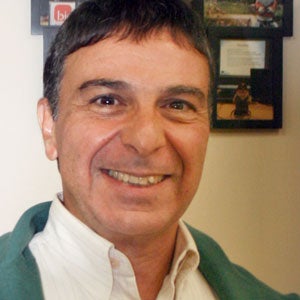 David Resende, University of Aveiro, Portugal
David Resende, University of Aveiro, Portugal
Dr. Resende has worked with IC² researchers in Portugal for many years. In a comparative perspective, his research projects analyzes how technology transfer offices operate in an open innovation paradigm. He hopes to identify a set of best practices and optimal public policies for technology transfer offices to maximize technology commercialization and tech transfer in a variety of regional and national settings. While he is a visiting scholar at the IC² Institute, he is also a Professor and researcher at the University of Aveiro.
August – November 2013
Daniel Prior, University of New South Wales, Australia
During his time at the IC² Institute, Dr Prior completed several major research projects in the areas of business-to-business marketing, services marketing and small business growth. Research topics include service worker coping in business solutions, the role of social identity in business solutions, the managerial relevance of academic business-to-business research, value co-destruction, and choosing the optimal growth strategy for small business.
September 2012 – July 2013
Cristina Galalae, Fulbright Scholar, Academy of Economic Studies, Romania
Ms. Galalae’s dissertation research focused on the influence of economic, social, and cultural factors on the purchasing decisions of mobile international consumers. In particular, she surveyed international graduate students at UT Austin and worked closely with the Austin and UT Fulbright community in organizing lectures and other events.
August 2011 – August 2012
Ana Francisca Aroso De Oliveira, Architectural Association School of Architecture, London
Ms. Aroso, from Portugal, spent her time at the IC² Institute working on her dissertation about the evolution of green design in home and commercial construction.

